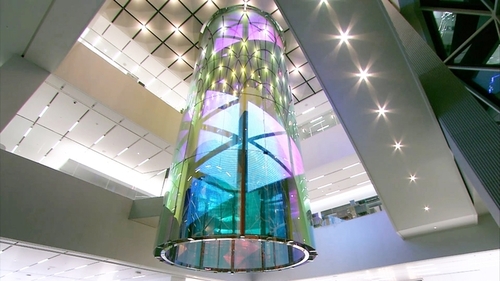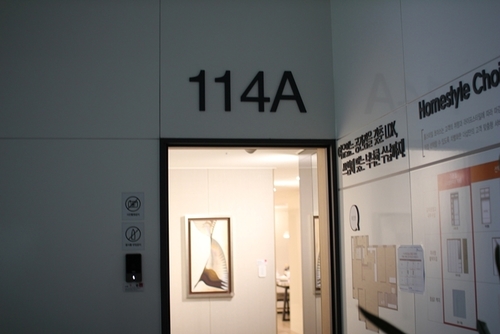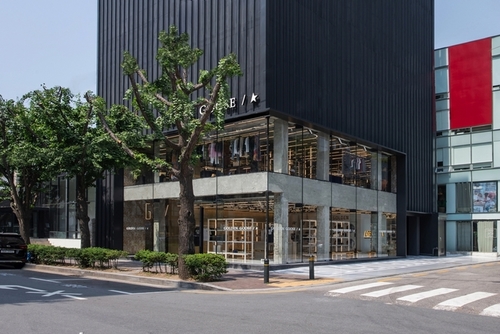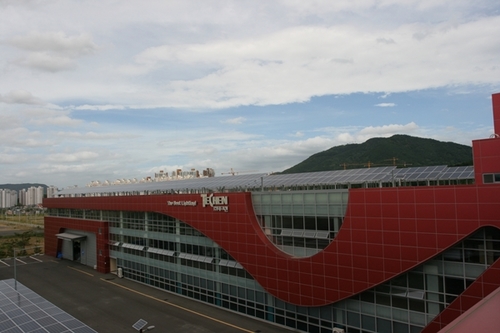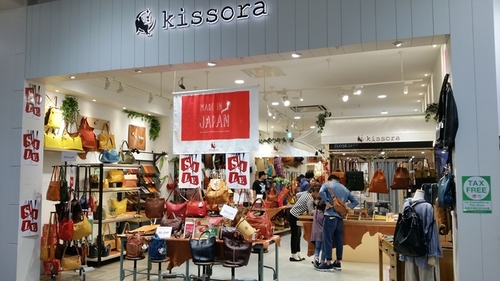How can lighting companies succeed in ‘expanding sales channels’?
Do not imitate big companies, and become number one in the niche market through differentiation
How can lighting companies succeed in ‘expanding sales channels’?Do not imitate big companies, and become number one in the niche market through differentiation
Written by : Jung-Bae Kim. Publisher & Editor. Lighting Critic.
The business conditions of global lighting companies are getting worse. The reason is the decline in sales and profitability due to the sluggish domestic market. To overcome this situation, it is absolutely necessary to expand the market.
consumers can trust and purchase products. It is very difficult to achieve these two goals. So, how can lighting companies around the world achieve these goals at the same time? <Editor's words> and price are. Small and medium-sized companies will be difficult to survive if they are swept away by the “identification strategy” of large companies. It is a realistic survival strategy for small businesses to be #1 in the niche market. continues, can we continue to maintain the company in the future?" Is to do. The reason small and medium-sized enterprises worry and worry is simple. This is because the business environment is deteriorating last year to the extent that SMEs cannot handle it.
improvement costs on businesses, rapidly rising wages and real estate rents, increasing demands for workers to increase welfare, and increasing various taxes are trending day by day.
competition intensifies, governments in each country are building trade barriers through various taxes and regulations. The price of the product is also on the decline. As a result, rising costs each year outpace growing profits.
markets, and reduce production costs by improving productivity. That's why we need to increase our operating profit. To do this, companies need'weapons'. The'weapons' can be summarized as product competitiveness, price competitiveness, marketing competitiveness, and brand competitiveness.
However, in any market, companies' product competitiveness and price competitiveness have been leveled to some extent. All that remains is marketing competitiveness and brand competitiveness. In the end, it is said that it is possible to expand sales channels and sales only if you are ahead of competitors with marketing and brand competitiveness while having product competitiveness and price competitiveness.
However, there is nothing as cruel as telling SMEs to increase their marketing c ompetitiveness or increase their brand competitiveness. This is because it takes time, manpower, and cost to increase marketing competitiveness and brand competitiveness.
What appears here is the problem of “financial power”. For example, a company that has the funds necessary to increase marketing and brand competitiveness can grow ahead in market competition by increasing marketing and brand power.
On the other hand, it is said that companies without such “financial power” cannot even get an opportunity to increase their marketing power and brand power. In extreme terms, it means that if you don't have the money, you have no choice but to sit down and die.
ice technique? The management strategy that attracts attention in that way is the Lanchester Strategy.
“The Lanchester Strategy” is the “law of mechanical relations” created by F. W. Lanchester, a British aeronautical engineer during World War II. This strategy was created by Lanchester's analysis of the results of the air wars that took place during World War I and World War II. The point is that the'weak company' presented a way to beat the'strong company'.
The 'Lanchester Strategy' is divided into'The First Law' and'The Second Law'. The “first law” is that if soldiers fight one-on-one with swords or spears, the army with a large number of soldiers wins.
enemies can be killed with one weapon from a distance, such as a gun. In this case, even if the two armies have the same strength or skill, the one with the better weapon performance will eventually win.
The important thing is that the probability of winning in this case is the "square" of the difference in weapon performance. For example, suppose that the performance of the weapon of Unit A is twice the performance of the weapon of Unit B. In this case, the difference in weapon performance between Unit A and Unit B is 2:1.
the combat power of the two armies is 2×2=4: 1×1=1. The difference in weapon performance is 2: 1, which is doubled, but the difference in combat power is 4: 1, which is 4 times.
Therefore, if Unit B is to exhibit the same combat power as Unit A, the number of soldiers must be four times more than Unit A, which is the core content of the second law of the Lanchester Strategy.
◆ “The Lanchester Strategy” and Marketing
the difference in weapon performance can be said to be the difference in better products, product quality, efficacy, and effectiveness.
For example, suppose that Company A and Company B have the same product quality, but Company A's market share is 7, and Company B's market share is 3 (7: 3). The influence of Company A = 7 × 7 = 49: Company B = 3 × 3 = 9. The market share is 7: 3, which is only 2.3 times (7 ÷ 3 = 2.3), but the market influence is 49: 9, which is 5 times (49 ÷ 9 = 5).
This small difference in market share results in a large difference in influence. Therefore, it becomes difficult for a company with a small market share to beat a company with a large market share. This is why small companies, small and medium-sized businesses, and c ompanies with low market share rarely sell, no matter how high-quality products they offer at cheaper prices.
◆ Big company's strategy & Small company's strategy
companies, and companies with high market share are different from those that small companies, SMEs, and companies with low market share must use.
In other words, large companies use the “identification strategy”. 'Identification strategy' is a strategy in which one's own company or product represents the entire market or product.
This is because'Coca-Cola', which has a higher market share than'Pepsi-Cola', when advertised, "Drink Coca-Cola," rather than emphasizing the company's name and product, "Cola, the pleasure of drinking it!"
In this way, the entire item called'Cola' is emphasized. The reason Coca-Cola advertises in this way is because, as more people drink Coke, the sales of Coca-Cola, which has a high market share, will naturally increase.
However, if it is Pepsi-Cola, you should not follow Coca-Cola's “identification strategy”. Instead, "Pepsi-Cola, cola for young people!" In this way, advertisements that emphasize the company's name and product characteristics should be'discriminatory'.
That is why young people who are marketing targets say, “Yeah! If you're young, you should drink Pepsi!”, and as a result, sales of Pepsi-Cola will increase.
◆ How to implement the “Lanchester Strategy”
country, have already come up with how to expand their sales channels and strengthen brand competitiveness.
In other words, lighting companies that are small and medium-sized enterprises should t horoughly pursue a'differentiation strategy'. The concrete practice method of the 'differentiation strategy' (Lanchester's abbreviation law) is summarized as follows.
1. Aim for No. 1 in a small market or a segmented market. method' from a strong company. attack. consumers.
In addition to this, ▲ we follow the No. 1 strategy. ▲ Capturing new trends in the path of a growth market. ▲ Differentiate and segment. ▲ Surrounding strong companies with various items. ▲ High-end products ▲ Make the strongest products stale ▲ Increase product competitiveness with brand power and price competitiveness. ▲ Do not do two things with one brand name. ▲ Use intangible products. ▲ It is also an important method to engage in side attacks and guerrilla attacks.
◆ How much should the market share increase?
power with superior weapons. The same is true of marketing and market competition. There are two weapons used in marketing and market competition: “money” and “market share”.
In particular, since market share is a key factor that determines the influence of a company in the market, it should be increased as much as possible. Then, to what extent should the market share increase? For the answer, it is better to refer to the Lanchester- Hunai Law of Market Share.
Yukio Funai, a Japanese management consultant, combined his thoughts with the "Lanchester Law" and released the "Lanchester-Funai Law" on market share. In this “Lanchester-Hunai Law”, meaningful market share is presented as follows.
▲Existing share : Minimum share to be recognized in the market : 7%. 11%.
others.
So, in the “Lanchester Strategy,” the emphasis is on “The weak should work harder and work more than the strong!” Even if you work one or two times more, it is difficult to beat the strong, so you should work at least three times more and harder.
But if the weak can beat the strong, what algebra would it be to work three times, four times or five times more?
What I want is that lighting companies around the world will use the “Lanchester Strategy” and the “Lanchester-Hunai Law” to escape the frustrations of small businesses and small businesses and become a strong company and become the No. 1 company. It is also a way for lighting companies around the world to survive, prosper, and be happy in the market competition.
<Copyright ⓒ World Lighting News>
<저작권자 ⓒ 월드라이팅뉴스 무단전재 및 재배포 금지>
댓글
판로 개척 관련기사목록
|
인기기사
Special Feature 많이 본 기사
|







